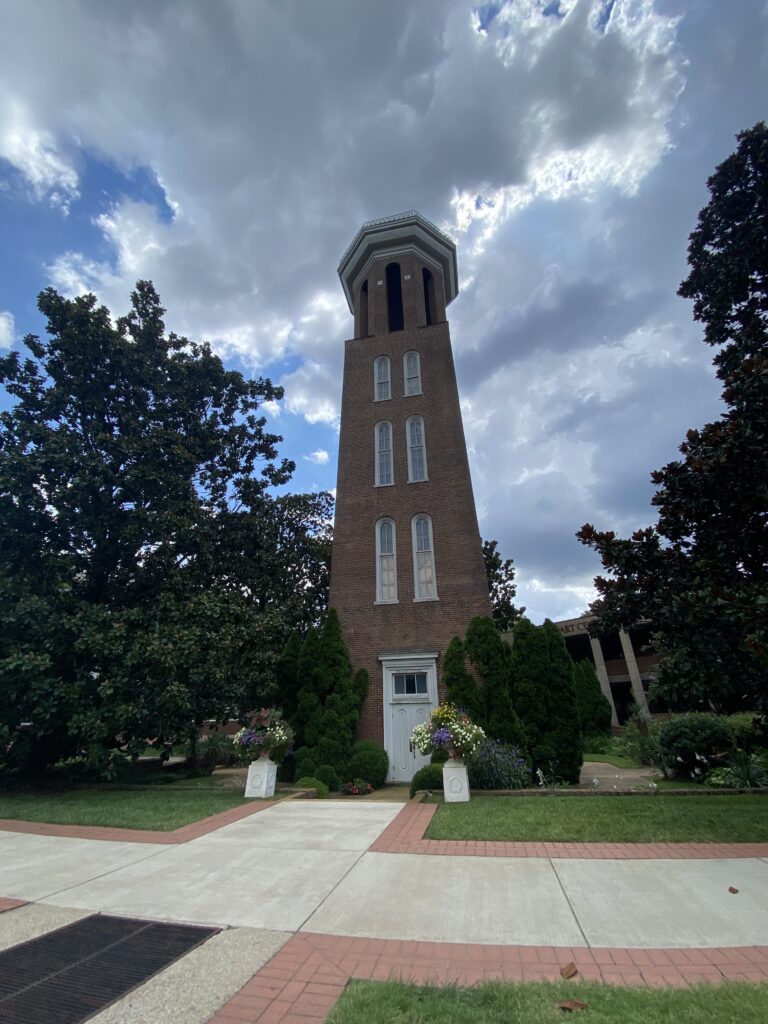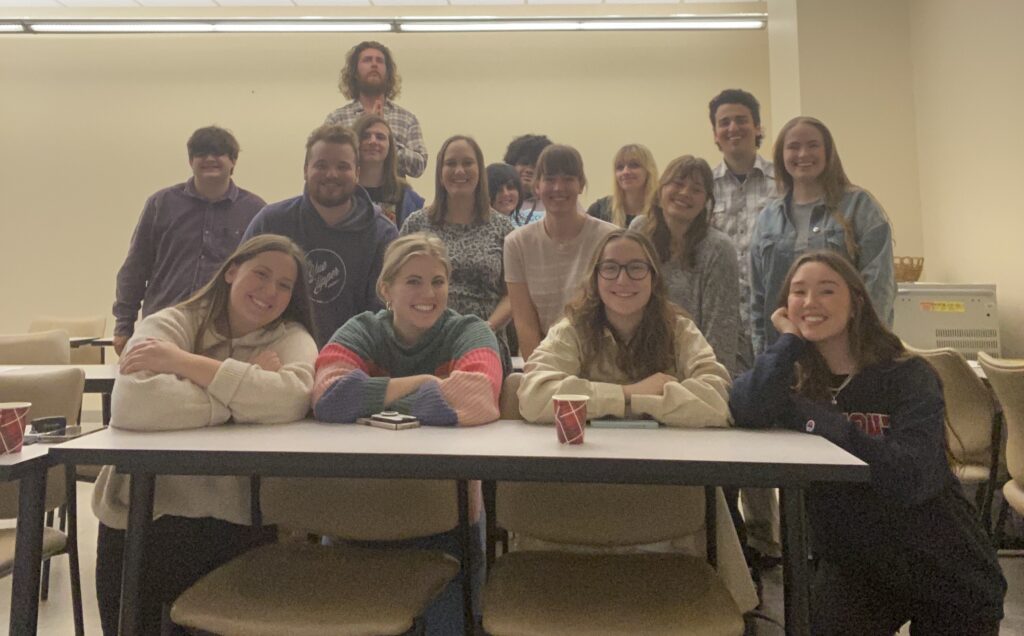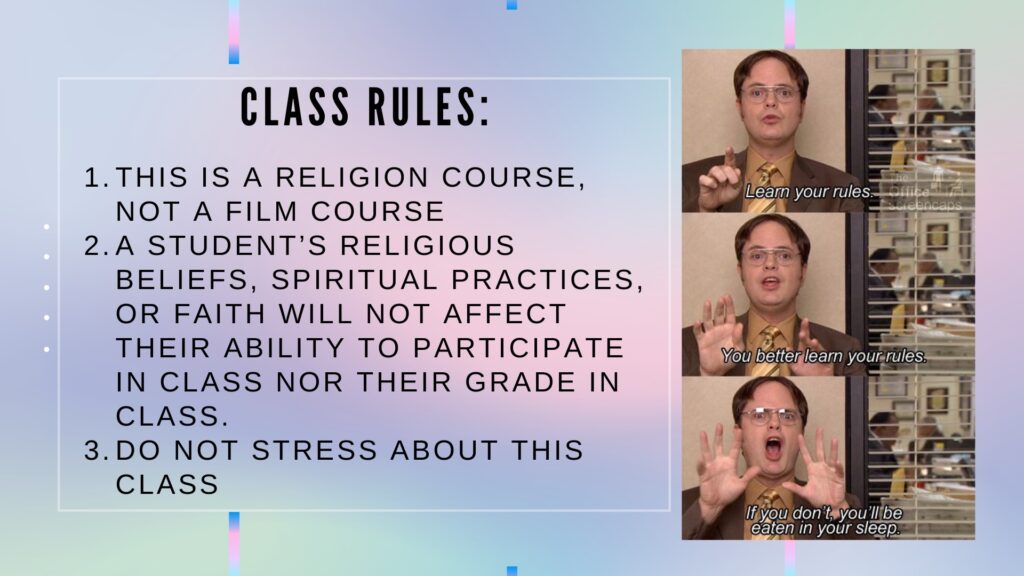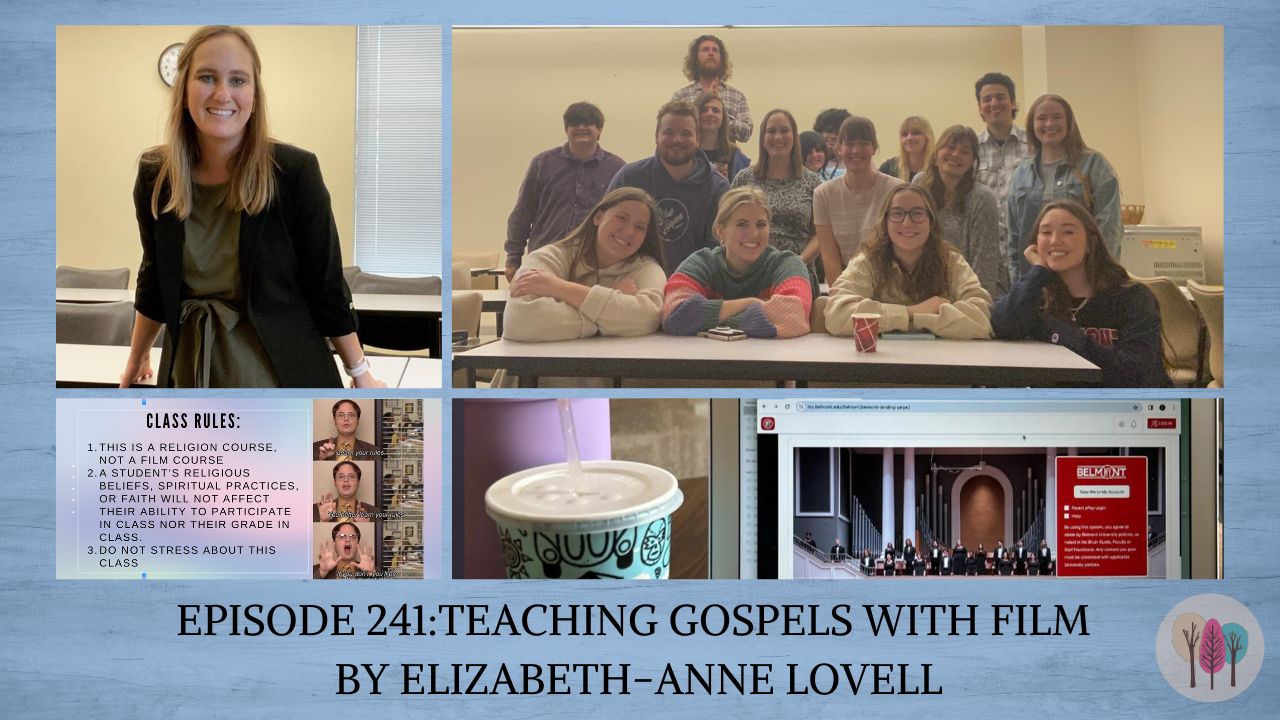This week our guest post “Teaching Gospels with Film” comes to us from Elizabeth-Anne Lovell, 3MMM Team member and adjunct instructor at Belmont University in Nashville, Tennessee. As we approach the new school year, we are excited to offer a short series of guest posts on teaching. Elizabeth-Anne shares her reflections on listening to students, watching movies, and the joy she finds when teaching the Gospels with film to undergraduates.
Q: What class(es) will you be teaching this fall?
I will be teaching two courses of Jesus in the Gospel and Film (JITGAF) this fall. And I learned on August 5th at 8:00am that I will be teaching a THIRD course called Entertainment, Scripture, and Culture. I teach all three classes at Belmont University, where I graduated in 2016.

I have been teaching JITGAF since the fall of 2020. It is such a fun course! The class is unique in that it uses movies to discuss the major themes of the Gospel.
We spend some time looking at each Gospel – discussing themes, characters, literary devices, and major plot points. Think of it more like a literature class than a Bible class.
Then, we watch movies! One movie for each Gospel: Matthew, Mark, Luke, and John.
This means that many students take this particular class because at least half of it is watching movies in class. But that doesn’t bother me. The movies are one reason why I love teaching it!
I am just now learning about the new entertainment class, since I literally accepted the offer to teach it a few days ago. The course focuses on the intersectionality between entertainment, scripture, and culture. It is asynchronous (AKA completely online) and designed for students doing Study Away Music Business internships in Los Angeles or New York.
Q: What do you love about teaching religion to undergrads?
I’ll answer about the Jesus in the Gospels and Film class since I have more experience with it…
The class meets the requirement for something called Junior Cornerstone and also can serve as the required Third Year Religion course for students. Junior Cornerstone focusses on group collaboration and presentation skills.
This means that everyone taking the class is required to be there.
It also means I do not teach to religion majors. And I have several students who are not Christians. Some who have never been to church.
Some students who have been hurt by the church. Some students practice other religions like Judaism or Islam. Some don’t really know where they stand.
And of course some students, like me, grew up in Sunday School and Vacation Bible School and GA’s. There are always one or two in that group that like to try to stump the teacher any chance they get.
This combination provides a unique environment to learn about Gospels. It is a mixture of students who never missed Sunday school and think they know every answer and students who didn’t even know there were four Gospels and are just trying to meet their course requirement.

What I love about teaching religion in this setting is…
- hosting a safe space where anyone can discuss anything about religion (or life or school or their future)
- inviting the freedom of curiosity, which leads to amazing discussions!
- connecting with students who share passion for the material
- witnessing the vulnerability of other students who are just doing their best to remember everything but are willing participants in discussion
- feeling that moment when a student who rarely speaks up in class writes a paper that brings me to tears and makes me wish there was a grade higher than an A+
- watching a group project lead to friendship.
- seeing students light up when they ask a question, start a discussion, or give a presentation.
Q: What are the challenges you face in teaching religion to undergrads?
My goal every year is that each student would end the semester less terrified of the Bible. And I’m learning that this is becoming a more difficult goal every year.
The Bible can be scary.
Academically, it contains incredible amounts of information that can all be interpreted differently. It has historical, theological, and spiritual aspects that all need to be taught in unique ways but also all include the other.
But culturally, the Bible has healed and hurt people. It has supported and undermined people. It has brought love and safety and hate and fear.
I never know what experience of Christianity each student brings with them on the first day of class. That always creates something of a challenge.
On top of that, I teach mostly Juniors.
Junior year is when the “real world” starts to feel closer and closer. It is when classes for your major being to become more specialized.
So students are working extra hard to pass exams, give presentations, and land internships. All while being required to take my class.
To handle this challenge, I share these class rules on the first day of my Jesus in the Gospels and Film class. They are also posted in the online resources for class. Sometimes I even add a question about them to a quiz.
The rules serve as a reminder that while the work we do in class is important, they don’t need to take the class too seriously. It is also a reminder that no matter where they stand with Christianity, they have an opportunity to be active participants and contribute.

Q: What is one thing you’ve learned about the practice of teaching recently?
I began teaching in 2020 during the height of the Covid-19 Pandemic. Now that I have settled more into my role and into the classroom, this is what I have learned. Teaching (especially undergrad) is really all about listening.
It isn’t just listening when students ask a question or speak up about a topic in class. That is important. But it is so much more…
It is listening when the student who slowly packs their bag quietly walks up to you after class.
It is listening when your students are talking about their weekend plans and invite you into the conversation.
Listening when you receive a long email at 2AM asking for an extension on a paper. Or when a student wants to know if it is ok if they miss a class.
It’s listening when a student comes to you with excitement in their voice with an idea about a presentation or their final.
Or listening when you ask “how are y’all holding up?” during midterms week, and you’re blessed with honest answers.
I didn’t plan on teaching undergrads as my career. I sort of stumbled into it after a bad day at work, a glass of wine, and an email to an old professor.
But in these conversations where I have a chance to listen – I know teaching religion to undergraduate students is where I’m supposed to be right now. And I cannot wait for the start of the new semester!




